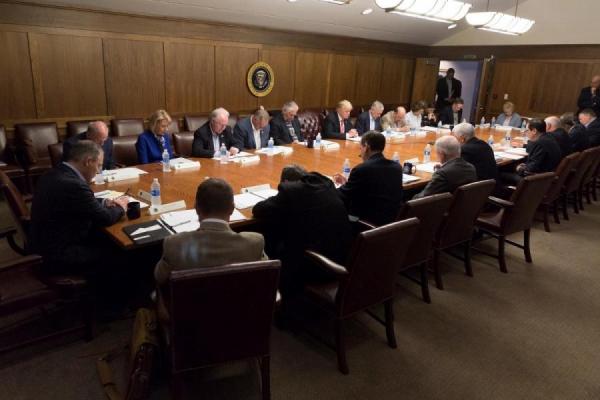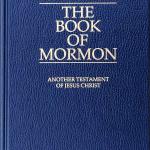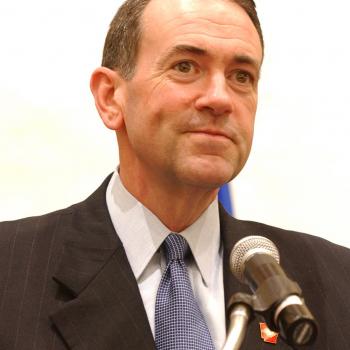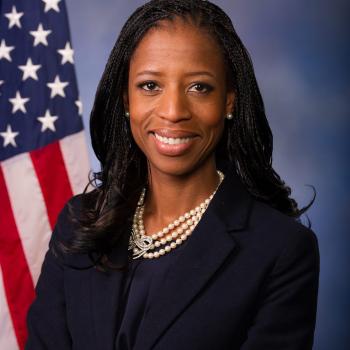
Donald Trump cynically uses prayer just like the ancient Zoramites – as a political tool to promote his own power and marginalize others.
If you look at Donald Trump’s Twitter account right now (I know, “The horror! The horror!”), you’ll see that his cover photo shows him and his entire Cabinet bowing their heads in prayer. There’s nothing out of the ordinary about that – prayer by government figures or their designees in official meetings has long been practiced in America and received the official sanction of the Supreme Court yet again in the 2014 case Town of Greece v. Galloway. Further, pretty much all politicians co-opt religious terms and devotion in order to promote themselves and further their aims. Observe how Democratic politicians have recently taken to citing the “I was a stranger” passage from Matthew to justify their support for DACA and for refugee admissions – and how Republicans repeatedly resort to scripture to shore up their stance on abortion.
But what is different about Trump is just how performative and blatantly insincere his religious pandering is. Trump, by all accounts, is a man with little in the way of religious sentiments or knowledge. In fact, after his election, when he met with Presbyterian ministers (Trump himself is a baptized Presbyterian), he didn’t seem to know that Presbyterians were Christian. When he talks about the afterlife, it is with such flippant and cartoonish terms that he may as well be cribbing from a South Park episode’s portrayal of the subject. And while it is customary for politicians, and especially the president, to sprinkle their speeches with references to deity, Trump has broken open his religious salt shaker to slather his public addresses and comments in faith-based verbiage.
Trump knows that he’s in office mostly thanks to religious voters who were willing to overlook the wasteland that is his personal character and vote for a man who would safeguard their “interests.” In a nod to them, he’s chosen to shamelessly play the God card like there’s no tomorrow. Trump’s photo of his Cabinet prayer is only the most recent example of this cynical deployment of faith as a political mascot. And it reminds me of a group of people in the Book of Mormon who also used prayer as a power play – the Zoramites.
The Zoramites were a group of dissenters from the Nephites who adopted a peculiar form of worship. On a particular day each week, they would gather in their houses of worship to recite, on a raised stand called a Rameumpton, the same performative prayer, in which they would extoll their virtues and disparage those who believed differently than them. After their weekly service, they wouldn’t mention God again until the next week’s meeting.
The rote nature of the Zoramites’ prayers, and their limitation to one day each week, suggests that they were likely not being offered for devotional purposes. Rather, one could plausibly claim that these “prayers” were being recited to solidify in-group cohesion and vilify those in out-groups. Just as national pledges and anthems are designed to promote loyalty to a country, prayer for the Zoramites had simply become a civic ritual – a “prayer” in form only, devoid of meaning. Later, the misbegotten civil cohesion spawned by the Zoramites’ “prayers” would be used to persecute those with differing religious beliefs and to launch a treasonous war against the Nephites’ central government.
It’s easy to see the parallels between the “civic religion” of the Zoramites and the performative prayer and rhetoric of Trump. Trump, not a religious man himself, wants to enhance his own power and preserve the coalition that elected him, and he deploys prayer and God-talk to this end. Similarly, the Zoramites sought to enhance their own power by using public “prayer” to strengthen civic solidarity. In addition, when Trump engages in “prayer performances,” they inevitably have explicitly Christian overtones that marginalize the millions of Americans who are atheists or belong to minority faiths. Likewise, the Zoramites’ prayers were geared at denigrating and marginalizing those who believed differently from them – they eventually went so far as to exile/deport thousands of their fellow Zoramites who had converted to a different belief system.
In the Book of Mormon, the prophet and missionary Alma the Younger was able to see the Zoramites’ “faith” for what it was – jingoistic, xenophobic nationalism dressed up in the robes of religion. Hopefully, people of faith in America will be able to see that Trump is just taking a page out of the old Zoramite playbook.












